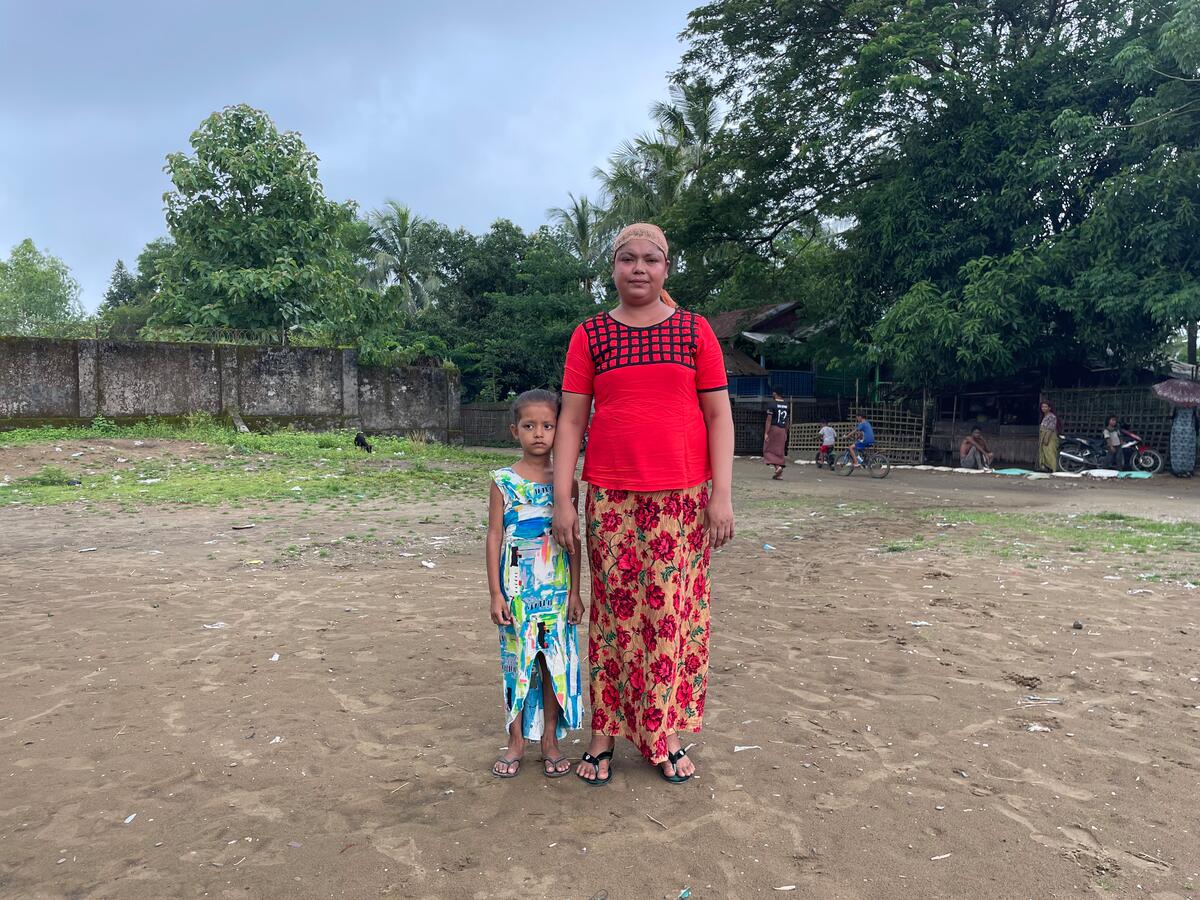DRC: UNHCR fears military build-up could create massive displacement
DRC: UNHCR fears military build-up could create massive displacement
UNHCR views with some concern the latest developments and the military build-up in the troubled North Kivu province of the eastern Democratic Republic of the Congo (DRC). The joint military operation by the Congolese and Rwandan armed forces in North Kivu, aimed at forcible disarmament of the Rwandan militia group, the Democratic Forces for the Liberation of Rwanda (FDLR), has begun with the arrival of Rwandan troops in the province earlier this week.
Drawing from our past experience in this region, we fear that these operations could create new and massive displacement of the civilian population. The humanitarian situation in North Kivu is already dramatic, with some 850,000 internally displaced people (IDPs). Of them, some 250,000 were forced to flee just since last August, and many of them have already been displaced multiple times.
The FDLR is one of many armed groups in eastern DRC, but is perceived by Rwanda as the major threat to its national security. In November 2007, the government of the DRC pledged to disarm the FDLR. Solutions for FDLR members included voluntary repatriation home or relocation within the DRC, subject to them becoming non-combatants. In December, the DRC and Rwanda agreed on a military plan to disarm FDLR by force.
The group is composed mainly of Rwandan Hutus who arrived in the DRC in the wake of the 1994 genocide in Rwanda. Today, some 30 per cent of the FDLR members are said to be Congolese Hutus.
We urge all parties to respect international humanitarian principles, to minimize civilian suffering and ensure safe passage for the civilian population away from the combat zones. We also call on the warring sides not to forcibly return Rwandan civilians.
It is also imperative for UNHCR and other aid agencies to be able to immediately deliver humanitarian assistance to civilian victims and to have safe and unhindered access to any new spontaneous sites where the displaced population may gather.
We support calls by the UN peacekeeping force in the DRC, MONUC, for parties to the conflict to protect the civilian population and respect humanitarian law. UNHCR believes it is crucial to ensure the civilian character of any new spontaneous IDP sites through identification and separation of combatants and to ensure the safety of the civilians at these sites.
UNHCR has been assisting the internally displaced population in the east of the DRC. There are presently 1.3 million IDPs in four eastern DRC provinces - South Kivu, North Kivu, Ituri and Oriental. Since the worsening of the displacement crisis in North Kivu in late August 2007, UNHCR has sent a several emergency teams and launched a camp coordination and camp management coordination group under which the agency presently manages seven sites (Mugunga I, II, III, Kibati I, II, Buhimba and Bulnego). Protection and assistance efforts include monitoring, identification and intervention on human rights abuses and other problems of IDPs and populations at risk as well as building new camp sites, registration of IDPs and continuing distribution of aid items.
Since 2004 UNHCR has organized and assisted the return and reintegration of almost 190,000 Congolese refugees. More than 309,000 remain refugees, most of them being hosted in neighbouring Tanzania, Rwanda, Zambia, Uganda and Burundi.









